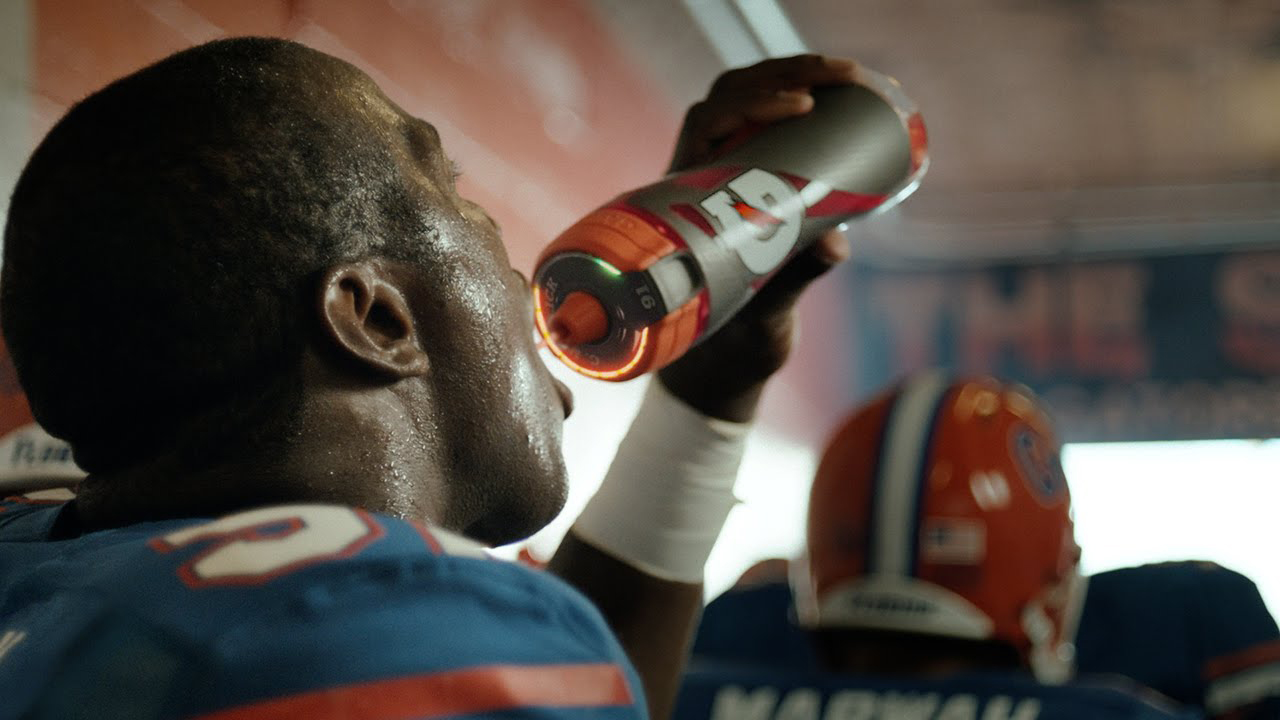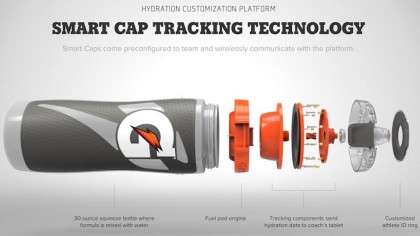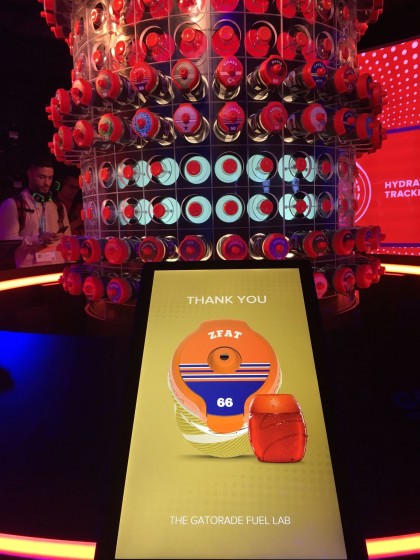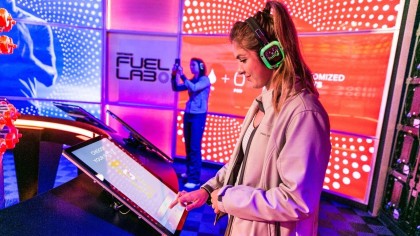Gatorade's sensor-equipped 'smart bottle' wants to change how athletes taste victory
This is the Gatorade Smart Cap Bottle, as seen as SXSW

Sign up for breaking news, reviews, opinion, top tech deals, and more.
You are now subscribed
Your newsletter sign-up was successful
Sweat, baby, sweat! From Nike to Under Armour, and now Gatorade, sports and technology are mixing more than ever, and it's getting hot.
Gatorade showed off some of its most forward-thinking digital work with a four-room interactive display at South by Southwest (SXSW), aiming to transition from quenching our thirst (pro tip: miracle hangover cure) to the ultimate "sports fuel" company.
The sports-drink pioneer, which taught the world about electrolytes, revealed prototypes of a microchip-fitted "smart cap" bottle and sweat patch that communicate digitally and provide athletes and fitness buffs constant updates on how much and when they should drink.

Smart cap
"Hydration needs aren't the same, and sweat loss ranges," said Drew Palin, Senior Marketing Manager, Gatorade Technology and Equipment Innovation. "We still have athletes wanting to become better at what they do, and they want to know as much about their bodies as possible."
Served in small egg-shaped pods that mix with water, Gatorade is creating 12 different formula to be used in new bottles featuring the smart-cap design, which, according to the company, will help athletes stay more efficiently hydrated and perform better.

The customized top cap can be personalized with player name, number, team color and logo. LED lights flashing indicate how actual consumption compares to hydration goals, and a cap chip shares real-time hydration data.
The formulas will range in carb, calorie and electrolyte levels to optimize fluid recovery, said Xavi Cortadellas, Global Innovation and Design Senior Director at Gatorade, who added that the cap had numerous iterations.
Sign up for breaking news, reviews, opinion, top tech deals, and more.
Cortadellas, who joined the brand in 2011 after 11 years at Nike, believes the move into customization and personalization was inevitable, given the rise of data-driven insight in sports in general.
To know which formula is right for which athlete, the brand has developed a suite of products and technologies that work together to measure and track individuals' data. A smart scale linked to a tablet and software, for example, catalogs a player's weight, along with training time and intensity, to make fluid and carb intake recommendations. A patch, like a near-field communication chip-enabled Band-Aid, will analyze a player's sweat and communicate with the digital platform to identify sweat type, which will determine sodium, electrolyte, and additional fluid-intake needs.
Gatorade started testing the smart-cap bottle with Brazil's national soccer team ahead of the 2014 World Cup and FC Barcelona squad. Last year, personalized bottles with pods made an appearance on the sidelines of the Kansas City Chiefs football team. The bottles' flashing lights tell players when it's time to fill up. It's clearly in the sweat.
Data-based biosensors
Gatorade is also working with a company called CoreSyte that makes biosensors to measure athletes' sodium, potassium, chloride and fluid-loss levels.
The sensors stick to skin like a bandage and track the athlete's sweat levels to recommend how much someone should drink. Once the data is collected, CoreSyte can plug the stats into Gatorade's platform with nutrition and workout recommendations.
Cortadellas said the patch "is basically a Band-Aid with electronics," and added that pro-athlete tests will accelerate this summer ahead of the launch.

The new items and tech-based offerings are the brand's latest effort to diversify its revenue stream. Its sports drink is a staple on the sidelines and in the locker room the world over, but, in essence, Gatorade wants to become a 24-hour-a-day source of nutrition and wellness for everyday athletes.
The company is also offering more protein chews, bars, powders, shakes and even a "night yogurt" to help those who work out rebuild muscles while sleeping.
Gatorade plans to start selling the bottles next year or 2018.